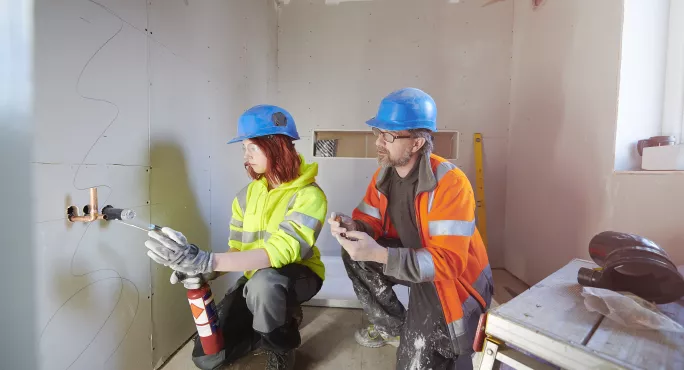The coronavirus pandemic will lead to greater diversity in apprenticeship assessments, Ofqual╠²associate director Claire Gill╠²has said.
Speaking at the Westminster Education Forum on apprenticeship quality in England this morning, Ms Gill said that apprenticeships should experience different types of assessments in the╠²ŌĆ£new normalŌĆØ that follows the coronavirus lockdown.
She said: ŌĆ£There is going to be greater diversity in terms of the types of assessment methods and we will see people experiencing different types of assessment and feeding that back through.
ŌĆ£And from an external quality assessment (EQA) provider point of view, we need to think about how we use technology to maintain quality assurance.ŌĆØ
Listen:╠²End-point assessment concerns
Background:╠²DfE criticised for coronavirus╠²apprenticeship guidance
News:╠²ŌĆśSpend apprenticeship levy on young people, not MBAsŌĆÖ
In order to qualify in their chosen field, apprenticeships have to pass an end-point assessment, which╠²assesses their knowledge, skills and behaviours. The coronavirus pandemic has meant that many of these have had to be delayed, while others have been modified and some have taken place remotely.╠²
Victoria Purtill, director for╠²authorisation and supervision at the Chartered Institute of Legal Executives, said that technology had╠²proven╠²apprenticeship assessment does not need to happen face to face.╠²
She said: ŌĆ£We can use a lot more remote assessment than perhaps we would have thought possible six months ago. From our point of view, we are thinking about it because our standard is╠²up for renewal, but I think there will be a lot more technology involved in assessment going forward.ŌĆØ
Maggie Jones, director of qualifications and partnerships at the the Chartered Institute of Marketing, said that they had applied for a change to the end-point assessment -╠²and it had been successful.╠²
She said: ŌĆ£ItŌĆÖs about agility and responsiveness to change. We have applied to have a change made to the end-point assessment because as it stood it was preventing people who were furloughed or who had been made redundant to actually complete the apprenticeship.╠²
ŌĆ£IŌĆÖm pleased to say we got authorisation for that change within about 10 days, that was really pleasing. That has to continue because standards and the end-point assessment attached to them, they have to evolve, they canŌĆÖt remain stagnant.ŌĆØ
Will end-point assessment organisations survive?
Ms Gill said that the ŌĆ£new futureŌĆØ wasnŌĆÖt just about changes to end-point assessment delivery but to the end-point assessment organisations themselves.╠²
She said: ŌĆ£The changes arenŌĆÖt all about assessment but we have to recognise that there have been economic influences, and it will be interesting to see how many end-point assessment organisations make it to the other side.ŌĆØ╠²





